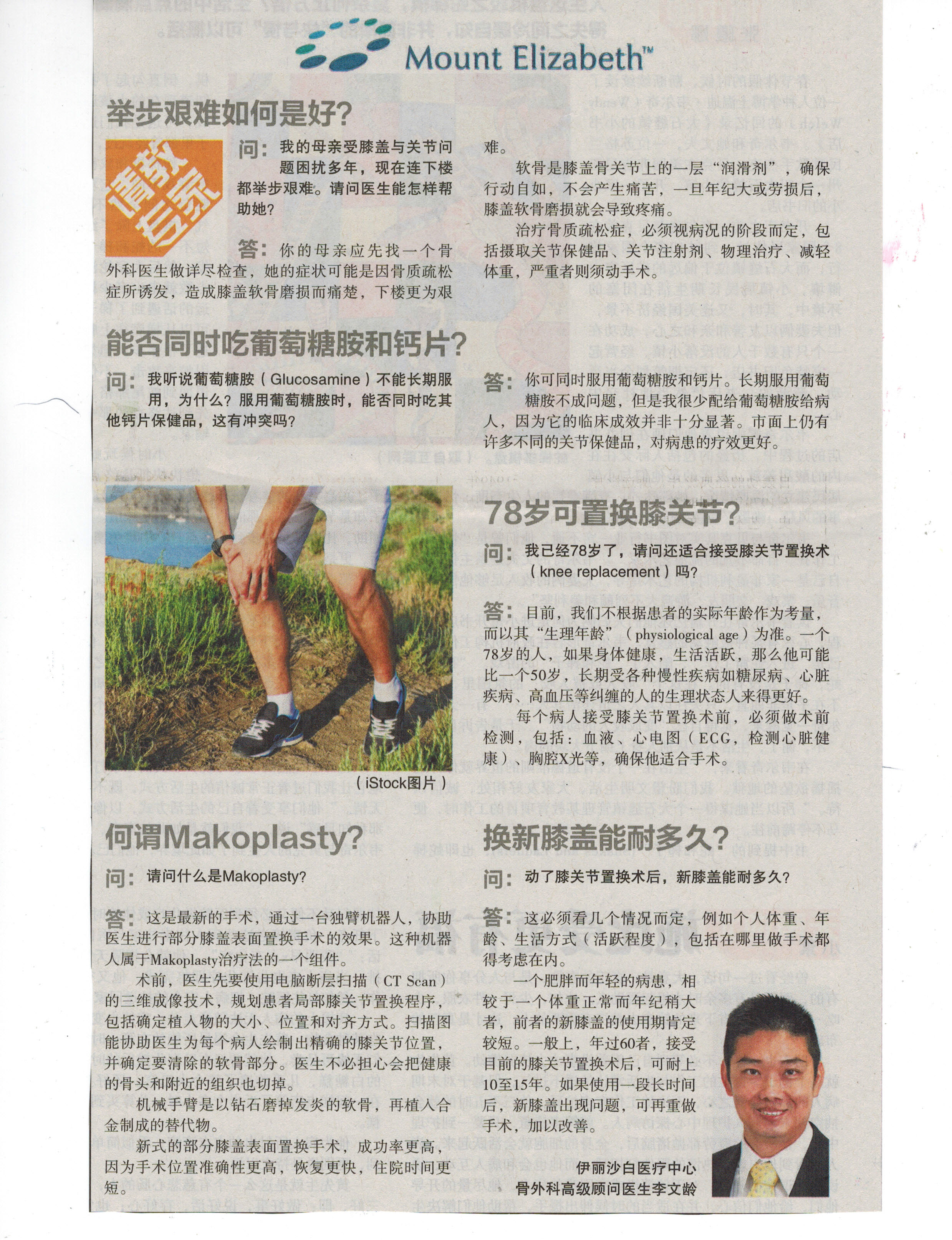Ask the Knee Orthopaedic Expert
Q: My mum has been having knee joint problems for many years and now climbing stairs is hard for her as well. Is there anything that can be done to help her?
A: Your mum should first consult a knee orthopaedic specialist for a more detailed examination. Her condition may be caused by osteoporosis and her knee cartilage might be worn out. The knee cartilage serves as a "lubricant" for the knee joint to move freely without pain. The type of treatment for osteoporosis depends on the severity of the condition.Q: Can Glucosamine be taken for long term? Can it be taken along with other Calcium supplements?
A: Glucosamine can be taken for long term and along with other Calcium supplements. However, the clinical effectiveness of Glucosamine is not very significant. I seldom prescribe it to my patients since there are better alternatives for joint care available in the market.
Q: Can I still undergo knee replacement surgery at the age of 78?
A: The physiological age, and not the chronological age, is the consideration for knee replacement surgery. A 78-year-old individual may be healthier and more active than someone who is 50 years old and suffering from various chronic heart diseases. Therefore, we have to do various tests (such as blood test, ECG and chest X-ray) to ensure the patient is suitable for surgery.
A: Makoplasty is the latest surgery technique using a robotic arm to assist in knee replacement. It is very precise and grants high success rate and quick recovery.
Q: How long can a knee replacement lasts?
A: This depends on various factors such as weight, age and lifestyle of the person, as well as the expertise of the knee replacement surgeon. Normally, patients over the age of 60 can expect a knee replacement to last 10-15 years. A revision surgery can be done when the replacement wears out or if new knee problems arise.

